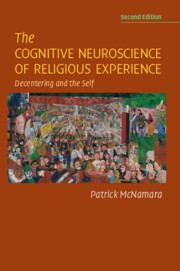‘A very welcome update of the most important book to date on the neuroscience of religion.’
Robin Dunbar - Professor of Evolutionary Psychology, University of Oxford, UK
‘Patrick McNamara’s brilliant synthesis of the structural and functional neuroscience literature with research on religious belief in the 2nd edition of The Cognitive Neuroscience of Religious Experience should be required reading for researchers and students entering this field, and for experts wanting a current state-of-the-art reappraisal of the religious brain.’
Jordan Grafman - Professor of Physical Medicine and Rehabilitation, Northwestern University, USA
‘McNamara expertly expands the frontier of the neuroscience of religion by integrating state-of-the-art research on psychedelics, embodiment, social cognition, predictive processing and more. In my opinion, the best book available on the topic; McNamara’s theorizing is cutting-edge and should be required reading for any scholar who seeks to understand how religious experience works in human brains.’
Uffe Schjødt - Aarhus University, Denmark
‘The 1st edition of The Cognitive Neuroscience of Religious Experience was an important book for the cognitive science of religion because of its introduction of the concept of decentering. This 2nd edition is an indispensable book for the cognitive science of religion. It is practically a whole new book in which decentering is integrated into 4E cognitive science and the predictive processing framework. McNamara offers powerful cognitive neuroscientific explanations for how altered states of consciousness, such as in psychedelic and mystical experience, and ritual practices can lead to profound transformations of the self that are both highly adaptive and deeply meaningful. This is a central book for anyone interested in addressing the Meaning Crisis that faces us today.’
John Vervaeke - University of Toronto, Canada
‘This book is THE place to go for reliable, up-to-date information about the cognitive neuroscience of religious and spiritual experiences. It is tricky territory and Patrick McNamara is the world’s best guide, by far.’
Wesley J. Wildman - Boston University and the Center for Mind and Culture, USA



